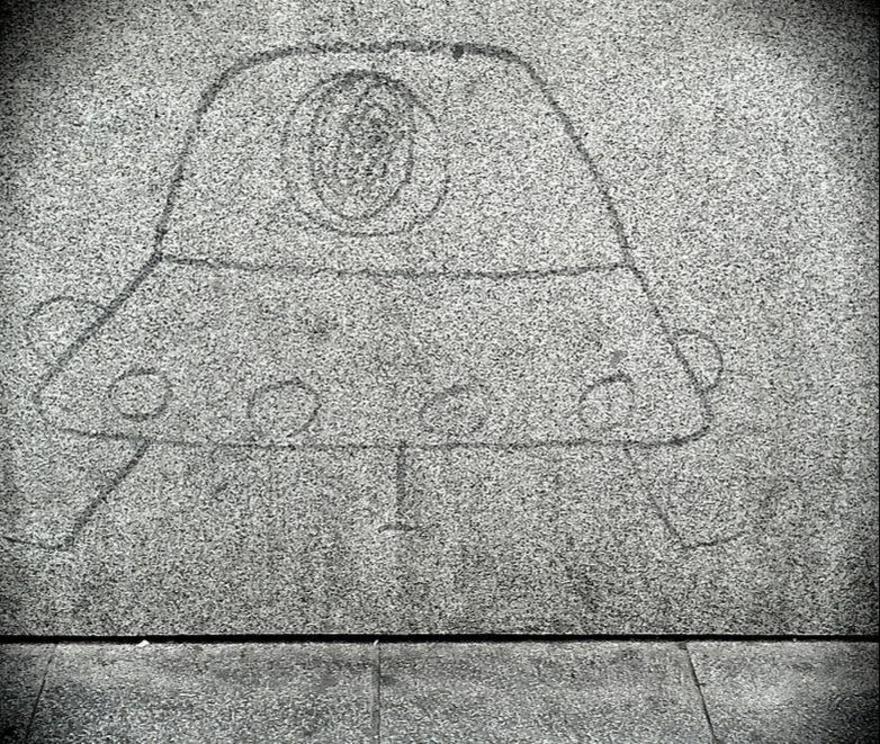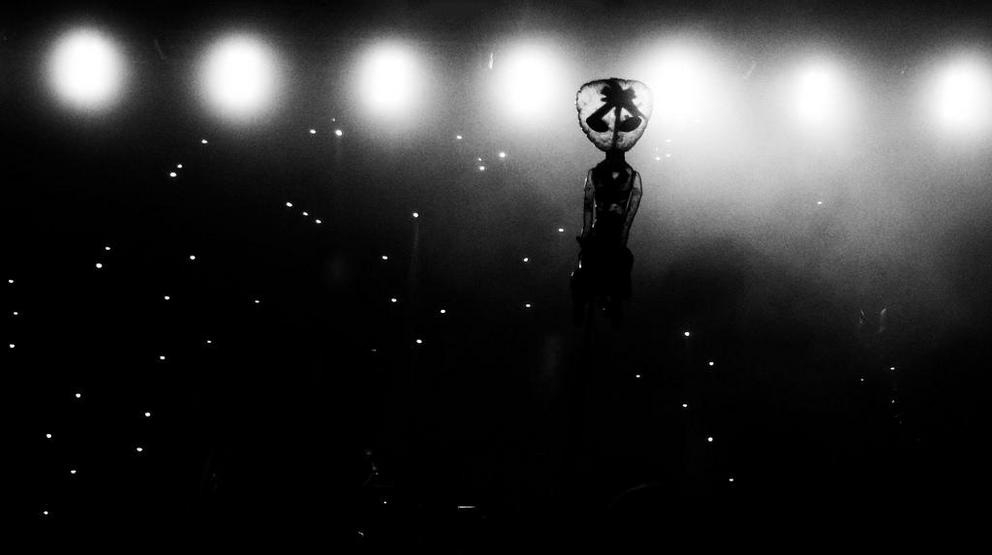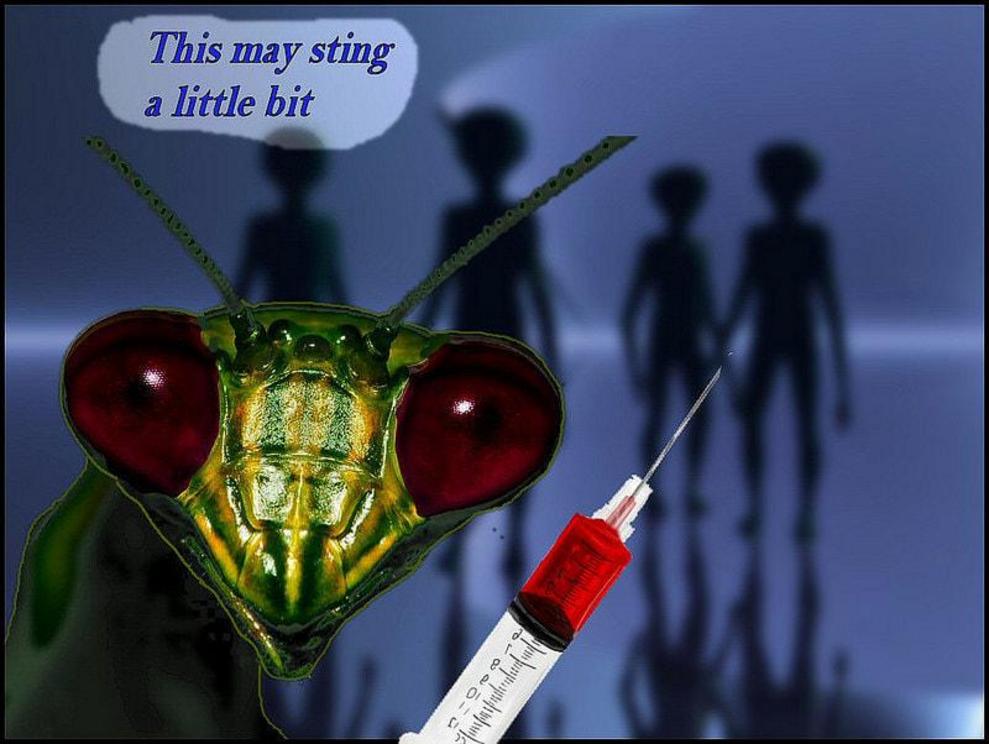The UFO community; a counter-cultural movement - part 1
The "E" Word and the Duality of the UFO Experience

The UFO subculture, as with every subculture, is shaped by minute details and ideological nuance. No subculture can point to a singular event that shapes the paradigms which form its identity. All communities which group together will share, what cultural theorist Dick Hebdidge called, “style.” The UFO subculture most definitely has a sense of communal self, a shared language and ‘jargon,’ and a sort of gravity which pulls members together. While one could easily write out a laundry list of important ‘moments’ within Ufological history, none of those events “are” the subculture’s identity. Rather, it is the collection of moments, their interpretation as well as the broader themes which ran through the popular culture of the day. The UFO subculture is not made up of one thing, but a whole host of things.
That being said, one common motif that runs through these communal moments is the notion of the extraterrestrial, the alien Other. Regardless of one’s personal beliefs regarding the notion of aliens, the history and mythology of the UFO narrative has fused the ET construct to the subculture. Before proceeding, one ought to be clear on the fact that not everyone in the UFO community interprets the idea of the alien in the same way. Indeed, the physical bug eyed alien grey is a common trope, but there exists a wide array of extraterrestrial ideologies. It must be understood that the ‘alien Other’ is best expressed as an intelligence that is non-human but possesses some sort of agency. Currently, there is no public material evidence that a “non-human Other” exists. With that being said, the countless stories, testimonies and experiential interactions with odd beings, monsters, and even divine entities cannot be written off totally. Something strange is going on, it is just unclear what or who that strange is.
Regardless, the UFO community engages in an ideological battle over the source of the phenomenon. Whether it be the Greys from Zeta Reticuli, Blue Avians, or a complex and intelligent overarching control system, the community often confuses its own personal ideologies with facts.

UFO researcher Lorin Cutts, in the book, "UFOs: Reframing the Debate" calls this the UFO mythological zone. The mythological zone is “the gap between fact and belief, what we see and what we want to see, and what we experience and how we interpret it.”
Cutts believes that this divide between truth and fiction is responsible for dysfunction inside the UFO subculture. He explains,
“...look at ufology as a whole- the vast majority lies within this mythological zone. And while there is nothing wrong with open discussion, speculation, and hypothesizing in a field so vast and mysterious, there is a world of difference between these things and passing off totally unfounded statements as absolutes.”
Cutts touches upon exactly what cultural theorists study when it comes to the mythologies that exist around and within a subculture. This mythological ideology forms the reality of the subculture.
This mythological foundation of the UFO phenomenon has made “extraterrestrial” a dirty word, and through transitive property, the term “UFO” as well. Ultimately, this has made UFO discourse counter-cultural, and we must understand that the community itself is pushed out of popular discourse and debate by these ideologies. Even though there are varying interpretations within the subculture of what UFOs are, the mythology which surrounds the subculture limits those differing ideologies and hypotheses to escape into mainstream understanding.

Extraterrestrials, whether they are physical beings or more mystical in nature, pose no real threat to scientific knowledge. To the established academia, those beings are far far away. Furthermore, their arrival here, should they exist, would only broaden scientific understanding for all of humanity. If aliens landed tomorrow, announced their presence, and took credit for centuries of visitation, would the often criticized pseudoscientific and reductionist field of Ufology and UFO discourse die an instant death? Would the study of alien technology and the aliens themselves, become an established academic and scientific discourse? Supposing such an event occurred, no matter how unlikely, the study of which would undoubtedly become established into schools of philosophy, sociology, theology, and the other humanities. The UFO subculture only exists because the entirety of the phenomenon remains unknown. It is due to this unknowability that the community is not allowed to participate in established academic and official culture. Furthermore, it is the mythology that has formed around this unknowability that has shaped the subculture into such a vast collection of ideologies and people.
This cultural bias was apparent after Harvard University professor and psychiatrist, Dr. John Mack, published his famous book, Abduction: Human Encounters with Aliens in 1994. Mack was heavily criticized by his peers for promoting nonsense, and, as historian Greg Eghigian, points out, his colleagues suggested, using quite an inappropriate racial trope, that he was “going native” by working with abductees and members of the UFO community. According to Eghigian, the controversy surrounding Mack’s work began when he started to "believe" his patients, and accept that perhaps some intelligence was behind the tales they recounted. According to Mack,
“What the abduction phenomenon has led me (I would say now inevitably) to see is that we participate in a universe or universes that are filled with intelligences from which we have cut ourselves off, having lost the senses by which we might know them. It has become clear to me also that our restricted worldview or paradigm lies behind most of the major destructive patterns that threaten the human future—mindless corporate acquisitiveness that perpetuates vast differences between rich and poor and contributes to hunger and disease; ethnonational violence resulting in mass killing which could grow into nuclear holocaust; and ecological destruction on a scale that threatens the survival of the earth’s living systems.”
Whether Mack’s patients were truly being taken by extraterrestrials is not important here. What is important is that Mack directly challenged academic and scientific authority. Rather than proper and thorough inquiry into his findings, his community lumped him into the lunatic fringe UFO subculture and attributed his new-found world view to a colonial cultural trope. Furthermore, it only reinforces the ideological fears which haunt the academic and scientific communities; that contemporary Western materialist and logocentric thinking is somehow flawed.

The UFO, both as a social and objective construct, is an object of dissension. It challenges mainstream culture. The UFO phenomenon, and every iteration that stems from it, whether it is a government conspiracy and alien abduction and fairy lore, simply put, is both fact and fiction simultaneously. The objectivity and authenticity of UFOs are in a constant state of duality, shifting in and out of cultural and social frames of reference. UFOs and extraterrestrials do not attach themselves completely to a reality we currently understand, therefore, to make claims of 'Truth' about them is impossible.
The UFO has two masters, the observable daily world we dwell in, and the world of mass media, television, literature and film. UFOs are products of the real and the imaginary. It is difficult to think of UFOs outside of the illusory meanings placed upon them by television shows like The X-Files or films like Close Encounters of the Third Kind. Moreover, various documentary programs, books and magazines have also shaped our collective understanding of what UFOs are. We consume UFOs rather than understand them. The UFO phenomenon is, outside of the illusions we’ve constructed, unknowable to us. We cannot “undo” the hyperreality of fact and fiction which shapes their meaning.
Regardless of this real/mythological duality we have framed the phenomenon in, the UFO haunts our culture. While imagery of alien Predators camouflaging in trees and tall white aliens in flying saucers grace our screens, real experiences of strange sightings and contact with strange unknown entities seem to dot our very real social storytelling. Both imagined and real, the UFO phenomenon challenges these boundaries. Nothing ought to be taken for granted, and UFOs act as a symbol of the transience of knowledge.
As a subculture engaged in the study and storytelling of the Ufological phenomenon, the community is an active counter-cultural movement challenging mainstream popular and official cultures.
In this two part series, I will underscore how the UFO community challenges mainstream ideology, and why this curious culture must exist upon the fringes of social discourse.
